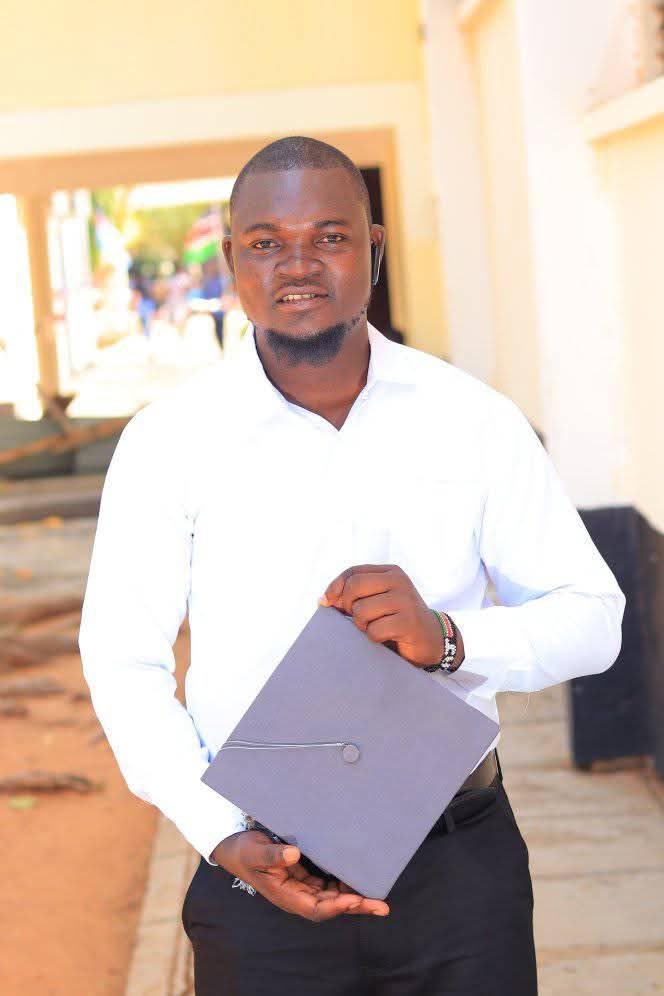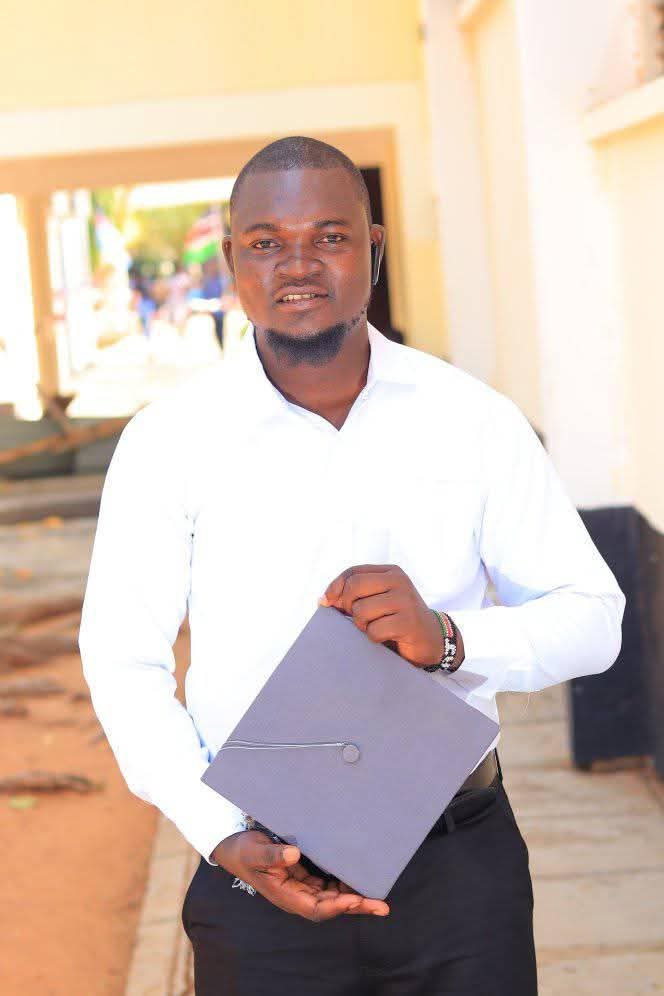
“Shocking Death of Albert Ojwang After Arrest Linked to DIG Sparks Outrage!”
arrest of journalist, police misconduct allegations, mysterious death in custody
Tragic Death of Albert Ojwang: Arrest and Controversy Surrounding DIG Eliud Langat
In a shocking turn of events that has raised eyebrows and ignited public outcry, Albert Ojwang, a close associate of prominent figures, was reportedly arrested on Saturday in connection with social media posts linked to Deputy Inspector General (DIG) Eliud Langat. The circumstances surrounding his arrest and subsequent death have been a subject of intense scrutiny, raising questions about police conduct and the implications of freedom of speech in Kenya.
## Arrest and Allegations
According to reports from friends of Ojwang, he was apprehended and taken to the Central Police Station following the controversial X posts that allegedly implicated DIG Eliud Langat. However, what has puzzled many is the absence of Ojwang’s name in the Occurrence Book (OB) at the station, a significant oversight that suggests potential foul play. Such inconsistencies in police procedure are alarming, leading to speculation about the motives behind his arrest.
Witnesses and close friends have voiced concerns about the treatment Ojwang received while in custody. They claim that he was not given the due process typically afforded to individuals under arrest. The lack of transparency surrounding his detainment has fueled suspicions of a cover-up and raised important questions about the protection of civil liberties in the country.
## Sudden Death Raises Further Questions
Tragically, by Sunday morning, it was reported that Albert Ojwang had died under mysterious circumstances. The police have stated that he “injured himself,” but many are skeptical of this explanation, fearing it could be a tactic to divert attention from potential police misconduct. The abrupt nature of his death, following his controversial arrest, has left family and friends devastated, and the public demanding answers.
Eyewitness accounts suggest that Ojwang showed no signs of distress before his arrest, which makes the circumstances surrounding his death even more perplexing. This incident has sparked a nationwide conversation about the treatment of detainees and the accountability of law enforcement agencies.
## Public Reaction and Outcry
The news of Albert Ojwang’s death has sent shockwaves across social media platforms, with many users expressing outrage and demanding justice. Activists and civil rights organizations are calling for a thorough investigation into the events leading to his arrest and untimely death. The hashtags related to this case have gained traction, with many advocating for accountability and transparency from the police.
Public figures have also joined the conversation, emphasizing the need to uphold human rights and ensure that individuals are protected from arbitrary arrest and potential abuse. The incident has reignited discussions about the balance between freedom of expression and the responsibilities of law enforcement to protect citizens.
## The Broader Implications
Ojwang’s death is not an isolated incident; it reflects broader issues within the Kenyan justice system related to the treatment of individuals in custody. The case highlights the urgent need for reform in law enforcement practices, particularly concerning how arrests are conducted and how detainees are treated while in custody.
Moreover, this tragic event serves as a stark reminder of the risks associated with exercising free speech, particularly in a political climate where dissent is often met with hostility. The implications of this case extend beyond individual rights; it speaks to the health of Kenya’s democracy and the fundamental principles of justice and accountability.
## Calls for Justice
As the public demands accountability, there are increasing calls for independent investigations into Ojwang’s death. Advocacy groups are urging for an impartial review of the circumstances surrounding his arrest and the subsequent events that led to his demise. They argue that only a transparent investigation can restore public trust in law enforcement and ensure that justice is served.
The involvement of civil society organizations is crucial in this regard, as they can bring international attention to the case and apply pressure on government officials to act decisively. The tragic loss of Albert Ojwang has become a rallying point for those advocating for human rights and police reform in Kenya.
## Conclusion
The arrest and subsequent death of Albert Ojwang have ignited a firestorm of controversy and public outrage. As friends and family mourn the loss of a beloved individual, the broader implications of this tragic event cannot be ignored. It raises critical questions about the state of human rights in Kenya, the accountability of law enforcement, and the protection of free speech.
As investigations unfold, the hope is that justice will prevail, not only for Albert Ojwang but for all individuals who have suffered at the hands of a system that must be held accountable. The fight for transparency, justice, and the protection of civil liberties is far from over, and it is essential that the voices of the people are heard.
This case serves as a reminder of the importance of vigilance in safeguarding the rights of all citizens, ensuring that such tragedies do not occur again. The legacy of Albert Ojwang should be one of change and reform, inspiring a collective movement towards a more just and equitable society.

BREAKING
Close friends to Albert Ojwang are saying he was arrested on Saturday over X posts linked to DIG Eliud Langat.
He was taken to Central Police Station but never booked in the OB, a clear sign of foul play.
By Sunday morning, he was dead.
Police claim he “injured… pic.twitter.com/cO3XTUxCzr
— Cyprian, Is Nyakundi (@C_NyaKundiH) June 8, 2025
Tragic Events Surrounding Albert Ojwang’s Arrest and Death
In a shocking turn of events, the recent news surrounding Albert Ojwang has raised eyebrows and sparked outrage across social media. This incident highlights crucial issues regarding police conduct, freedom of expression, and the potential dangers that individuals face when expressing dissenting opinions online. Let’s dive into the details of this troubling case that has caught the attention of many.
Who Was Albert Ojwang?
Albert Ojwang was not just an ordinary citizen; he was known among his peers for being outspoken and unafraid to voice his opinions, especially concerning topics related to governance and justice in Kenya. His dedication to social justice and accountability made him a figure of interest, but it also placed him in precarious situations. His friends describe him as a passionate individual who cared deeply about the well-being of his community.
The Arrest of Albert Ojwang
On a seemingly ordinary Saturday, Albert Ojwang was arrested, allegedly due to social media posts linked to Deputy Inspector General (DIG) Eliud Langat. Eyewitness accounts and reports suggest that Ojwang was taken to the Central Police Station but was never booked in the Occurrence Book (OB), which is standard procedure for arrests. This absence of documentation raises serious questions about the legitimacy of the arrest.
As many know, the OB serves as a critical legal document that records all police activities, including arrests. The failure to log Ojwang’s arrest indicates potential foul play. Friends and family have expressed their concerns, stating that the lack of transparency surrounding his arrest could hint at deeper issues within the police force.
The Circumstances of His Death
Tragically, by Sunday morning, news broke that Albert Ojwang had died while in police custody. Reports from the police claim that he “injured himself,” a statement that has been met with skepticism and outrage from the public. How could someone who was merely expressing their thoughts online end up dead just a day after being arrested? This incident has opened up discussions about police brutality and the treatment of detainees in custody.
Public Reaction to the News
The reaction to Ojwang’s death has been swift and fervent. Friends, family, and social media users have taken to various platforms to express their grief and anger. Many are calling for justice and demanding accountability from the police. The hashtag #JusticeForAlbertOjwang has been trending, showing just how much this incident resonates with the public. People are not only mourning the loss of a life but are also questioning the safety of citizens who dare to speak out against authority.
Freedom of Expression in Kenya
This case brings to light the ongoing struggle for freedom of expression in Kenya. Many activists and journalists have faced harassment, intimidation, or worse for simply voicing their opinions. The fear of retribution can stifle critical discussions on governance, corruption, and human rights. Albert Ojwang’s situation serves as a stark reminder of the risks faced by those who challenge the status quo.
The Role of Social Media
Social media has become a powerful tool for activism, allowing voices that were once silenced to be heard. However, it also comes with its own set of dangers. Posts that criticize government officials can lead to serious repercussions, as seen in Ojwang’s case. The digital landscape is fraught with challenges, and users must navigate these realities while advocating for change.
Calls for Transparency and Accountability
In the wake of this tragedy, many are demanding transparency in the investigation surrounding Ojwang’s death. Activists are calling for an independent inquiry to examine the circumstances of his arrest and subsequent death. The lack of accountability for law enforcement officers involved in such incidents can perpetuate a culture of impunity, leading to more tragic outcomes.
What Comes Next?
The death of Albert Ojwang is a rallying cry for many in Kenya and beyond. As the public continues to demand justice, it’s crucial to keep the conversation alive. Discussions about police reform, human rights, and freedom of expression need to be at the forefront of the national dialogue. Social media can play a pivotal role in these discussions, allowing citizens to mobilize and advocate for change.
Conclusion: A Call to Action
The tragic events surrounding Albert Ojwang’s arrest and death serve as a grim reminder of the challenges faced by those who dare to speak out. As we reflect on this incident, let’s remember the importance of standing up for justice and holding those in power accountable. It’s essential to take a stand against injustices and push for a safer environment where everyone can freely express their opinions without fear of retribution.
As the situation develops, let’s continue to share information, support one another, and advocate for a society where justice and transparency prevail. Albert Ojwang’s voice may have been silenced, but through collective action, we can ensure that his message lives on.
BREAKING Close friends to Albert Ojwang are saying he was arrested on Saturday over X posts linked to DIG Eliud Langat. He was taken to Central Police Station but never booked in the OB, a clear sign of foul play. By Sunday morning, he was dead. Police claim he “injured